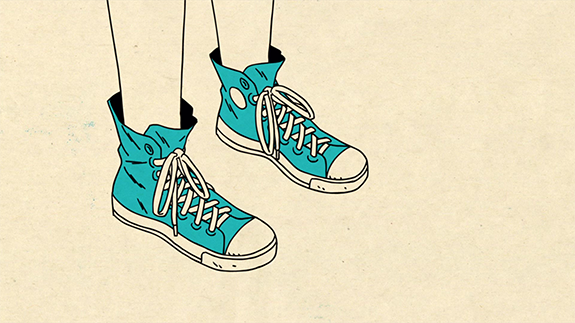Does school prepare students for the real world? This teen speaker says no
By Adora Svitak on August 25, 2015 in TED-Ed Clubs

Are teenagers today prepared for life after school? Or are American students too coddled? Windsor High School student Aliezah Hulett ponders these questions in her TED-Ed Club talk, “Preparing Students for the Real World.” During the talk, she advocates for schools to teach more real-life skills to their students, including a basic understanding of the metric system and a more realistic approach to sex education. Read on for an interview with Aliezah about the gap between what we learn in school vs. what we need in later life.
There’s a lot of discussion about modern youth being supposedly less ready for adulthood than their parents’ generation. Do you think that today’s teenagers are less prepared for the real world than ever before? If so, why?
Teenagers today are the perfect example of what can happen if parents never challenge their children to go above and beyond. They hand everything to their kids. It used to be that you’d be extremely privileged if you got to use your parents’ old beatup car once you turned sixteen. If you wanted something else, you would get a job and pay for it yourself because it was triggering a sense of responsibility. Nowadays, I see 16-year-olds with trucks and Priuses straight off the lot. This causes teenagers to be less prepared for the real world than ever before. A large chunk of this is due to parents coddling their children. According to this interesting article from The Guardian, “more than a quarter of 20 to 34 year olds are still living with their parents according to new statistics — the highest proportion since 1996.”
Do schools have a responsibility to fill in the gaps when parents don’t educate their children about basics?
The school system and parents should be working together to raise educated students. Schools should be accountable for instructing students to be knowledgeable about the world around them, even when the parents slack off. It should be a joint effort between parent and educator to train the next generation of children to be independent and prepared for what’s ahead.
Some educators might be concerned that teaching lessons around more real-world subject matter would take time away from traditional topics like calculus or Shakespeare. Do you see value in traditional topics?
Traditional topics such as calculus and Shakespeare should not be neglected, but teachers should be able to ask their class, “Now, how can we use this lesson outside of the classroom?” Every class should be able to draw out a moral that students can leave with daily. For example, a possible moral for Shakespeare’s Romeo and Juliet could be to not be swept up in emotions and carry out such rash actions.
Right now, do you think most of your peers are capable of handling life after high school and college?
If my peers were to be thrown into the real world, I don’t think that they would know how to handle themselves. There’s a sense of responsibility and maturity that come from having a job. When someone puts their head down to achieve their goals by themselves, as an independent adult, their outcome will reflect what they learned in both high school and college. These include how to sew a button or how to use a plunger!
You spoke about the need for a pragmatic approach to sex education in schools. How would you respond to those who say students shouldn’t be learning about sex at all in school?
Those who think that teenagers shouldn’t be taught about sex in school are trying to shield children from learning about the outside world. In high school, college, and the many years after, sex is a real thing. I agree that abstinence is the only way to fully prevent teen pregnancies and sexually transmitted diseases among youth, but what happens when they do decide to have sex? The answer is that they could end up getting pregnant and spreading STDs because they may not know how to properly address these types of situations. This is in no way promoting sex, but instead teaching tomorrow’s future about the truth, and what may arise in their future. By providing students with knowledge of how to properly go about the physical and mental components of sex, we are raising educated adolescents.
If you had the opportunity to design a school from the ground up, how might its classes be different from classes in existing schools?
If I got to design my own school, the classes that students would take would be based on two main components: what students are interested in, and what students will need for their lives after graduating. Sometimes, there are classes that we don’t necessarily like but are required to take because they teach things that are needed out there in the real world, or provide a better basis for the rest of a child’s learning career. However, it is proven that when a child is enjoying the class, they are more likely to absorb the information. If there is a particular subject or teaching style that a student likes, that’s information to act on.
More than 10,000 students are now sharing and presenting their ideas in TED-Ed Clubs around the world. Interested in starting a TED-Ed Club at your school? Find out more.
Tags: Aliezah Hullett, Clubs